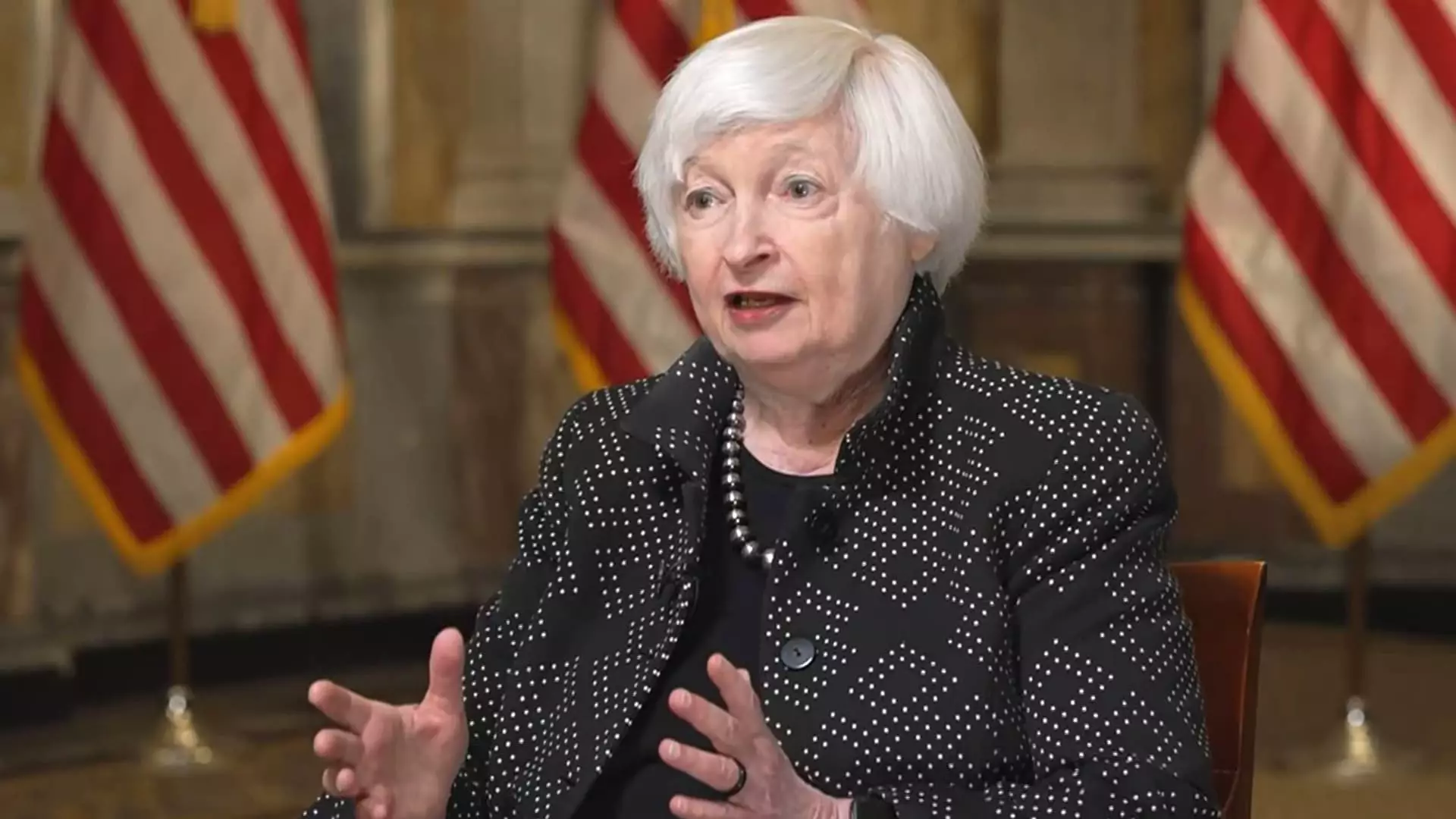In a recent interview reflecting on her tenure as Treasury Secretary, Janet Yellen offered crucial insights into the inflation that has affected the U.S. economy in the wake of the Covid-19 pandemic. While acknowledging a potential connection between stimulus spending and rising prices, Yellen emphasized that the core issue leading to inflation is rooted primarily in supply chain disruptions caused by the pandemic. This perspective underscores the complexities of economic recovery, suggesting that the challenges are not solely a consequence of governmental financial policies but also a multifaceted crisis affected by global events.
Yellen’s assertion that the inflation seen under President Biden’s administration is largely a “supply-side phenomenon” sheds light on how external factors play a significant role in economic outcomes. In a period when many industries faced unprecedented disruptions, the bottlenecks and shortages of essential goods led to considerable price increases, highlighting the delicate balance between supply and demand in a recovering economy.
During her exit interview, Yellen reaffirmed the necessity of the $1.9 trillion Covid relief bill that was enacted to address the immediate repercussions of the pandemic. Despite the subsequent inflation, she maintained that this financial aid was vital during a chaotic period marked by surging infection rates and unemployment. Her focus on alleviating human suffering during the crisis illustrates the ethical considerations that frequently accompany economic decisions, where the immediate needs of the population must be weighed against long-term fiscal implications.
Yellen’s comments also reflect a broader ethos of prioritizing public welfare over deficits, suggesting that sometimes, strategic spending is crucial for national recovery. By framing the spending as a response to a public health emergency, she raises an important question about the role of government in crisis management and the justification of expenditures aimed at stabilizing society.
While Yellen sought to defend the administration’s financial strategies, she also faced notable criticisms regarding the significant federal deficit that soared to $1.8 trillion in the last fiscal year. In her response, she outlined how the increasing costs associated with servicing national debt were impacted by higher interest rates, thereby complicating the larger narrative around fiscal responsibility.
Moreover, Yellen was skeptical of proposals for massive government spending cuts, as suggested by efforts to create a “Department of Government Efficiency.” She raised valid concerns about the political feasibility of slashing funding for popular mandatory programs like Social Security and Medicare, indicating that any sustainable solution to reducing the deficit requires careful consideration of societal priorities.
As Yellen prepares to hand over the reins to Scott Bessent, her reflections serve as a strategic guide for future economic policymaking. Her interpretation of the interplay between pandemic-induced challenges and governmental responses points to the need for continual evaluation of approaches aimed at ensuring economic stability. The incoming Treasury Secretary will need to navigate a landscape that is not only shaped by immediate fiscal pressures, but also by the long-term implications of past decisions made during a time of crisis. The ongoing discussions surrounding inflation, spending, and the structural integrity of the economy are critical as the nation forges ahead in its recovery journey.


Leave a Reply